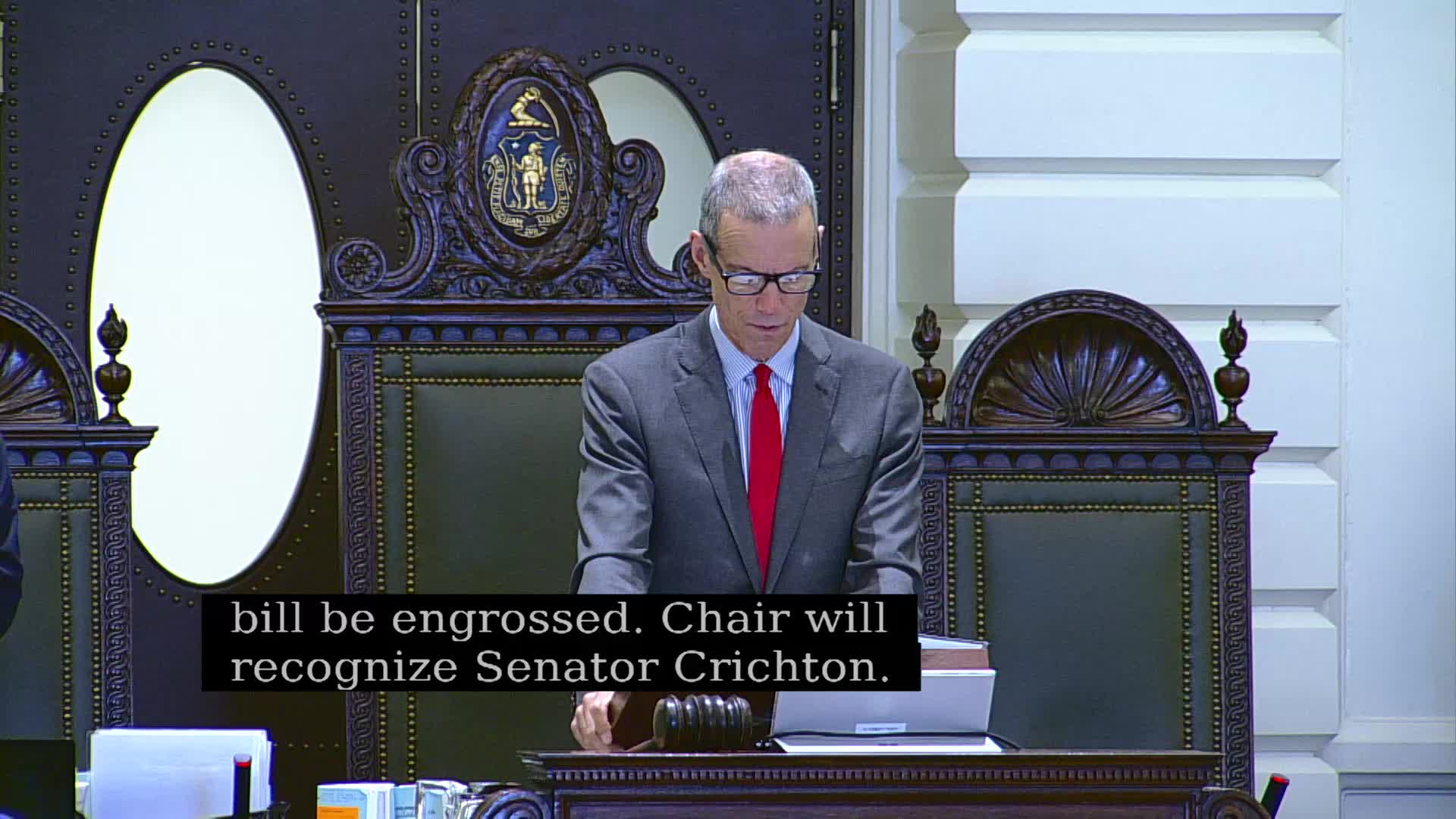Senate Approves $1.185B Transportation Funding for Municipal Roads and Bridges
July 31, 2025 | 2025 Legislature MA, Massachusetts
This article was created by AI summarizing key points discussed. AI makes mistakes, so for full details and context, please refer to the video of the full meeting. Please report any errors so we can fix them. Report an error »

On July 31, 2025, the Massachusetts Senate convened to discuss critical legislation aimed at enhancing the state's transportation infrastructure and addressing pressing educational concerns. The session highlighted two significant bills: the Chapter 90 funding for municipal roads and bridges, and a proposal to promote student learning by restricting cell phone use in public schools.
The primary focus of the meeting was House Bill 4307, which seeks to finance long-term improvements to municipal roads and bridges. This legislation proposes an unprecedented funding level of $1.185 billion, significantly higher than the previous $375 million authorized in past sessions. The funding is designed to support various projects, including $200 million for standard Chapter 90 funding, $100 million specifically for rural road improvements, and additional allocations for bridge repairs and traffic congestion alleviation. Senators emphasized the importance of this bill in ensuring equitable distribution of resources, particularly for rural communities that have historically received less funding.
Senator Tarr and others expressed urgency in passing the bill to maximize the construction season, noting that delays could hinder the timely execution of essential projects. The discussions also included a proposed amendment aimed at increasing transparency in how municipalities utilize their Chapter 90 funds, although this amendment was ultimately not adopted.
In addition to transportation funding, the Senate addressed a bill aimed at promoting student learning and mental health by prohibiting cell phone use in public schools. Senator Lewis articulated the negative impacts of cell phone addiction on students, including diminished academic performance and mental health issues. This legislation, which emerged from a growing public concern over cell phone use in educational settings, reflects a significant shift in legislative priorities, as no similar bills were introduced in the previous session.
The Senate's discussions underscored a commitment to addressing both infrastructure needs and educational challenges in Massachusetts. As the session concluded, the urgency to enact these measures was palpable, with senators advocating for swift action to ensure that the benefits of these investments reach communities and students across the Commonwealth. The anticipated next steps include further deliberations and votes on the proposed legislation, with an emphasis on maintaining momentum to capture the full benefits of the construction season and improve educational environments for students.
The primary focus of the meeting was House Bill 4307, which seeks to finance long-term improvements to municipal roads and bridges. This legislation proposes an unprecedented funding level of $1.185 billion, significantly higher than the previous $375 million authorized in past sessions. The funding is designed to support various projects, including $200 million for standard Chapter 90 funding, $100 million specifically for rural road improvements, and additional allocations for bridge repairs and traffic congestion alleviation. Senators emphasized the importance of this bill in ensuring equitable distribution of resources, particularly for rural communities that have historically received less funding.
Senator Tarr and others expressed urgency in passing the bill to maximize the construction season, noting that delays could hinder the timely execution of essential projects. The discussions also included a proposed amendment aimed at increasing transparency in how municipalities utilize their Chapter 90 funds, although this amendment was ultimately not adopted.
In addition to transportation funding, the Senate addressed a bill aimed at promoting student learning and mental health by prohibiting cell phone use in public schools. Senator Lewis articulated the negative impacts of cell phone addiction on students, including diminished academic performance and mental health issues. This legislation, which emerged from a growing public concern over cell phone use in educational settings, reflects a significant shift in legislative priorities, as no similar bills were introduced in the previous session.
The Senate's discussions underscored a commitment to addressing both infrastructure needs and educational challenges in Massachusetts. As the session concluded, the urgency to enact these measures was palpable, with senators advocating for swift action to ensure that the benefits of these investments reach communities and students across the Commonwealth. The anticipated next steps include further deliberations and votes on the proposed legislation, with an emphasis on maintaining momentum to capture the full benefits of the construction season and improve educational environments for students.
View full meeting
This article is based on a recent meeting—watch the full video and explore the complete transcript for deeper insights into the discussion.
View full meeting
